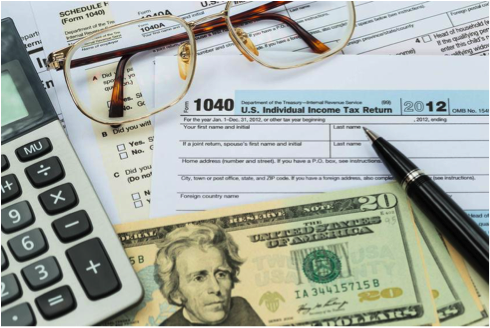
There are still a few new changes for the 2019 tax year that could impact the way you file your taxes.
Here are a few tax changes you should be aware of as you prepare to file in 2020.
Income Tax Bracket Increases
The tax rate is the percentage of income that a person pays in taxes. A taxpayer’s tax rate is determined by the tax bracket, or income range, they are in. In 2019, tax rates remained the same, but income tax brackets have increased to account for inflation. The bracket increase from 2018 to 2019 is a few hundred dollars, so unless your income or marital status has changed, you likely won’t notice a huge difference.
Related article: Who Gets the Tax Credits is a Tricky Spot for Non-Traditional Families
Higher Standard Deductions
Taxpayers can opt to take the standard deduction (an automatic reduction in the amount of taxes owed) instead of itemizing deductions. Itemizing deductions one by one can be quite inconvenient and it’s only worthwhile if the itemized deductions exceed the amount of the standard deduction. The standard deduction almost doubled with the 2018 tax reform law and increased slightly this year to adjust for inflation. Everyone’s financial circumstance is unique, so it’s important to consult with an experienced CPA to determine whether or not you should take the standard deduction.
Related article: Tax Change Explained: Miscellaneous Deductions on a Schedule A
No More Penalty for Not Having Health Insurance
The Affordable Care Act may still be around, but the penalty for not having health insurance is gone. Effective for the 2019 tax year, taxpayers without insurance will no longer be fined a penalty. The penalty for 2018 was $695. While this break may give uninsured taxpayers some relief, not having health insurance can result in serious financial consequences in the event of serious injury or illness.
Threshold for Medical Expense Deduction Increased
The 2018 tax reform law allowed taxpayers to deduct medical expenses above 7.5% for the 2017 and 2018 tax years, but that expired in 2019. For the 2019 tax year, taxpayers can deduct unreimbursed medical expenses above 10% of their adjusted gross income. This threshold increase will make it more difficult for some taxpayers to deduct medical expenses when filing this year.
Estate Tax Exemption Increase
When someone dies owning money and property, they may be required to pay an estate tax on what they own. Effective for the 2019 tax year, taxpayers can own up to $11.4 million in assets before the estate is required to pay a 40% tax. In 2018, the limit was $11.2 million. You can learn more about changes to the Estate Tax on the IRS website.
Related article: Can I Get an Extension on my Tax Deadline?
With tax season in full swing, it’s important to begin preparing. Because tax laws often change from year to year, it’s highly recommended that you work with a professional CPA when preparing your taxes. At Marcia L. Campbell, CPA, we work closely with our clients, guiding them through the process of filing the proper individual and trust or estate tax forms. Contact us to find out how we can help with tax preparation, tax filing, and more.

